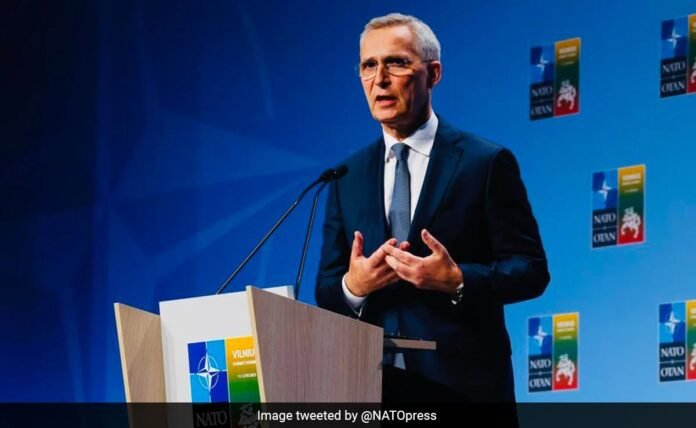
German Minister Calls for UK and France to Strengthen Nuclear Capabilities in Wake of Trump’s Remarks
In the aftermath of President Donald Trump’s recent declaration that the United States would not come to the defense of NATO members failing to meet their defense spending obligations, a proposal for a “nuclear shield” has emerged, igniting debates across European corridors of power.
Christian Lindner, the German finance minister, has stirred the discourse by advocating for the UK and France to fortify their nuclear capabilities as a safeguard against potential Russian aggression.
Against the backdrop of Trump’s admonitions regarding NATO spending, Lindner’s call has prompted a reevaluation of European defense strategies and cooperation.
In an op-ed for the Frankfurter Allgemeine Zeitung, Lindner posed the critical question: “Under what political and financial conditions would Paris and London be prepared to maintain or expand their own strategic capabilities for collective security?”
The query underscores the urgency felt among European leaders to reassess their defense commitments in an increasingly uncertain geopolitical landscape.
The proposition holds weight as the UK and France stand as the sole European nations possessing nuclear arsenals, maintaining independent control over their deterrents despite their NATO membership.
While France’s nuclear deterrent operates outside NATO’s command structure, President Emmanuel Macron has expressed openness to European collaboration in nuclear defense, especially in light of evolving security threats.
Tom Sauer, a scholar at the University of Antwerp, advocates for the “Europeanization” of France’s nuclear capabilities, stressing the need for a collective European defense posture.
He highlights Macron’s acknowledgment that French nuclear weapons could be deployed in defense of Europe’s security interests, signaling a shift towards greater integration within the EU on defense matters.
However, the prospect of Europe relying less on the United States for defense has been hastened by Trump’s remarks, causing consternation among European policymakers.
Katarina Barley, Vice President of the European Parliament, voiced concerns over the unpredictability of US support under a potential Trump re-election, prompting a reassessment of Europe’s defense autonomy.
NATO Secretary General Jens Stoltenberg sought to assuage fears by citing increased defense spending by European allies, emphasizing the principle of collective defense enshrined in the alliance’s doctrine.
Stoltenberg reiterated NATO’s commitment to mutual defense, highlighting the deterrent effect it has on potential aggressors.
Nevertheless, the specter of a diminished US security umbrella has spurred European leaders to contemplate alternative defense mechanisms, including bolstering nuclear capabilities.
The discourse surrounding a “nuclear shield” reflects the growing realization that Europe must take greater responsibility for its security in an era of geopolitical uncertainty.
As Europe grapples with the implications of Trump’s warnings and seeks to assert its strategic autonomy, the debate over nuclear defense capabilities is likely to intensify.
The path forward remains fraught with challenges, but the imperative to safeguard Europe’s peace and freedom necessitates bold and decisive action in the realm of defense policy.
This article was created using automation technology and was thoroughly edited and fact-checked by one of our editorial staff members